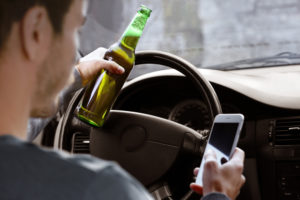
Most factors that determine what the average settlement is for a car accident with a drunk driver are unrelated to the cause of the crash. Instead, they revolve around the severity of a victim’s injuries, necessary treatment, and their financial harm. These vary significantly from accident to accident, making it impossible to calculate an average settlement. Each claim depends on its facts.
You can gather evidence of your expenses and losses and calculate a fair settlement range or work with an attorney who will handle these tasks for you. A car accident lawyer will know how to put an appropriate value on your case and fight to recover that money for you.
What Factors Influence the Value of My Claim?
Each drunk driving collision case is different, and so is its value. A wide variety of factors could influence the value of these claims:
- The nature and severity of your injuries
- The prescribed treatment and its costs
- Any complications you suffer
- How long you missed work
- If you suffered long-term or permanent injuries
- The damage to your vehicle
- The value of your car
- Your pain and suffering
For a free legal consultation, call (800) 537-8185
Pursuing Compensation After a Drunk Driving Accident
Most traffic accident cases settle without going to trial. Instead, the insurance company representing the negligent driver agrees with the victim or their lawyer to pay for the expenses and losses experienced.
Developing the case and negotiating for a settlement take time and resources. In car accident cases, the best possible outcome is that the victim receives compensation to pay for their medical care, lost wages, car repairs, and more. The insurance company pays what is fair based on the actions of their policyholder.
If the insurer will not act in good faith or there are other questions of fact in your case, you may need to sue the drunk driver to recover compensation.
How do I Hold a Drunk Driver Responsible for My Car Accident Injuries?
Traffic collision claims require you to prove fault and liability. You must show that the at-fault driver – in this case, a drunk motorist – acted negligently and caused the crash. There are four elements to negligence:
- The driver had a duty to follow traffic laws and behave safely.
- They did not do this, drinking and driving and violating other traffic laws.
- Their behavior caused the accident.
- You suffered physical, financial, and emotional harm as a result.
It is essential to know that the focus on your case against the at-fault driver may not be their blood alcohol content. While evidence of drinking and driving can strengthen the claim against this driver, the alcohol’s physical, cognitive, and psychological effects likely led them to make another mistake behind the wheel that led to the crash.
Your case will require you to document and detail this action, such as failing to maintain their lane or crossing over the centerline, to hold them responsible.
What About the Criminal Case Against the Drunk Driver?
While most people think of the criminal case against a drunk driver, accident victims receive their financial recovery through civil action. These two cases can influence one another, but they are not directly related.
You can recover compensation even if the at-fault motorist receives a plea deal, is not convicted, or never faces charges. The evidence used in the criminal case may bolster your claim, but the outcome is irrelevant to whether you receive just compensation.
Click to contact our personal injury lawyers today
Do I Need an Attorney to Recover a Fair Settlement?
Having a car accident lawyer on your team can make the legal process more manageable and less stressful for you. It may also improve your chances of recovering a fair and just settlement because the law firm will:
- Investigate what happened
- Protect your rights
- Prove the value of your case
- File the claim
- Manage all communications with the at-fault driver and their representatives
- Negotiate for a fair payout
- Sue the at-fault driver if necessary
Personal injury law firms generally handle these cases on a contingency fee basis. As result, victims do not pay a retainer or other upfront fees. Instead, the attorneys get paid from the compensation they recover.
Deadlines for suing the at-fault party in a traffic accident vary based on state law and the circumstances of the crash. You could have one to three years to begin this process, depending on where you live and where the accident occurred. Louisiana has the shortest statute of limitations of the Gulf South states. Its deadline is just one year under La. Civ. Code Art. 3492. Exceptions could give you even less time.
Morris Bart, LLC Represents Victims of Drunk Drivers in the Gulf South
At the Morris Bart law firm, our team reviews drunk driving crash cases for free. We help accident victims better understand their options and rights. We have 15 offices, and the areas we serve include four states: Louisiana, Mississippi, Alabama, and Arkansas.
Call (800) 537-8185 today to speak with a member of our team about your crash.
Questions?Call (800) 537-8185
to find a Morris Bart office near you.

